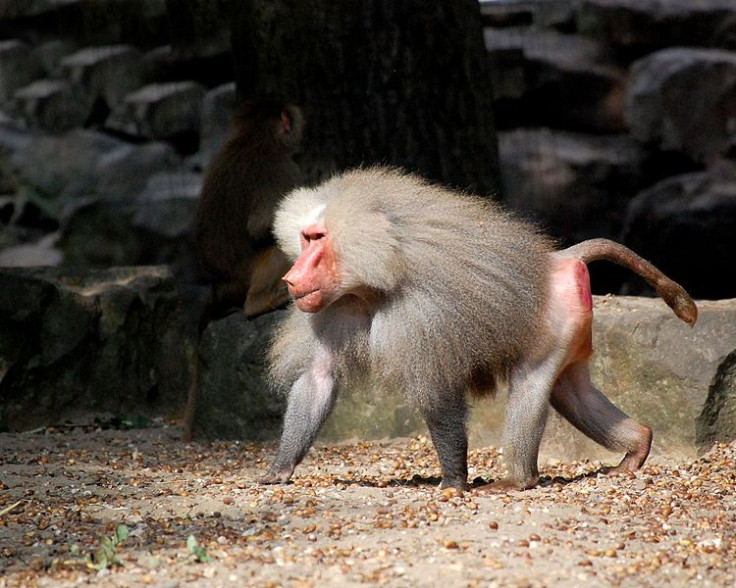Researchers Link Four Genes To 'Bad' Cholesterol In Baboons

Researchers at the Texas Biomedical Research Institute have identified four genes in baboons that they say may be associated with levels of LDL, or so-called "bad," cholesterol. The genes - named TENC1, ERBB3, ACVR1B, and DGKA - have also been associated with cancer, the researchers say in Texas Biomed press release.
For the study, which was published online today in the Journal of Lipid Research, the team found three half-sibling baboons with low levels of LDL, and three half-sibling baboons with high levels of LDL, and fed them a high-cholesterol, high-fat diet for seven weeks. Subsequent whole-genome profiling of the animals' livers found that certain genes were expressed differently in the low-LDL baboons than in the high-LDL baboons.
The genes are also part of a pathway involved in cell survival, and mutations in this pathway have been shown to help the development of certain kinds of cancer, Texas Biomed says. "Since these genes have previously been associated with cancer, our findings suggest that genetic causes of heart disease may overlap with causes of some types of cancer," study author Laura Cox says in the statement.
And because baboons are so similar to humans in certain physiological and genetic ways, the researchers believe the discoveries they make with the animals can translate to humans. "Our findings are important because they provide new targets for the development of novel drugs to reduce heart disease risk in humans," Cox adds.
LDL cholesterol is a major risk factor for heart disease, but despite lifestyle changes and a healthy diet, some people still struggle with their cholesterol levels, leading researchers to believe there may be a genetic component as well as an environmental one, Texas Biomed says. The researchers say they plan to continue their work, starting with examining the specific mechanism by which these genes influence LDL levels. That knowledge will help in the development of targeted therapies, Cox says in the statement. The information may be available within two years, Texas Biomed adds.
Source: GM Karere, JP Glenn, S Birnbaum, et al. Identification of Candidate Genes Encoding an LDL-C QTL in Baboons. Journal of Lipid Research. 2013. Accessed May 15, 2013.



























